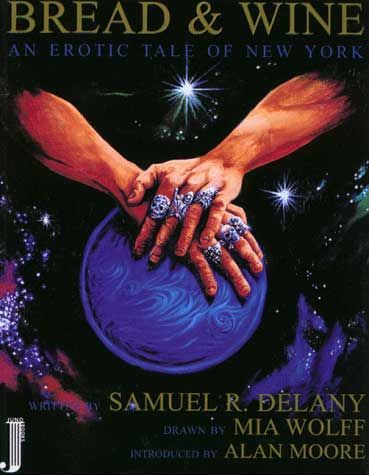In conjunction with Prism Comics, the preeminent website for lesbian, gay, bisexual and transgendered (LGBT) comics and creators, every day this month I will be detailing one good comic book/graphic novel with LGBT themes.
Here's an archive of the featured works so far!
Today we look at an intriguing look at the barriers that still exist between different classes in modern society.
It's a shame that I couldn't find any preview scans of the book online, as Mia Wolff's artwork takes a bit getting used to, and I would have loved to have shown you what her style looks like - it is this rough, simple style that often works in fantastical elements into the book. It's quite unique and striking.
That said, the book is mostly carried by writer Samuel Delaney, as the story is literally his, re-telling his relationship with a homeless street vendor.
Delaney, an accomplished and critically acclaimed African-American novelist strikes up an unlikely friendship with Dennis, an Irish-American homeless man. Though Dennis is quite honestly filthy, there still exists an attraction and soon the men develop a friendship, then a sexual relationship and then ultimately a committed relationship (the book is almost a decade old now, I do not know how long they remained together - I know they were still together when the book came out).
In this novel, Delaney plays with basically every distinction made between people in modern society - black/white, rich/poor, even clean/dirty!
And he does so in a manner where it all falls apart in the face of love (or at least the hope of love).
If you don't take my word for it, take a look at this piece from the introduction, written by one Alan Moore:
Bread & Wine affirms the central truths of all Delany's writings with conviction that is absolute, a light unscattered by the necessary mirror-surfaces of fiction: that love will transfigure and redeem. That the profane can only be the sacred. That the scum of all the earth and salt of all the earth are of the same coin. This is wisdom. This is necessary radiance to drive the shadows from the underpass, the ghosts from needle park, to blow the fogs away from culture's edge, it's coastline, and revel the widening ocean of the dispossessed beyond as objects not of fear, but of desire, of love. This is a marvelous book, filthy with feeling, with discovery. I recommend it utterly, and without reservation.


